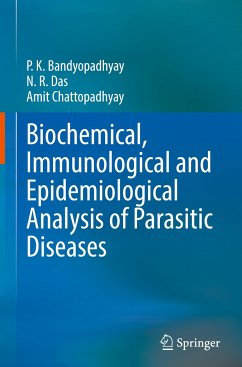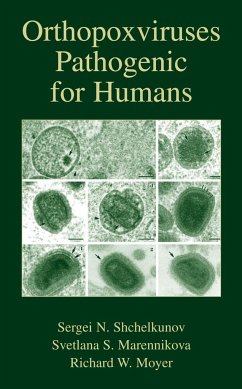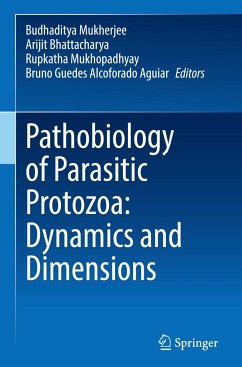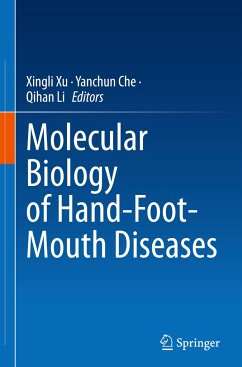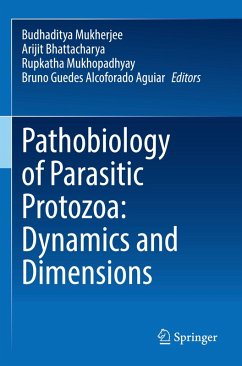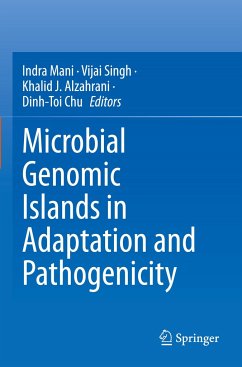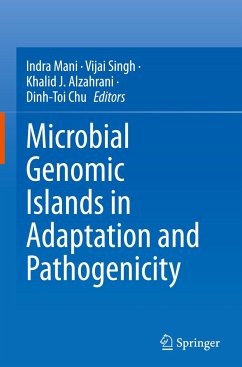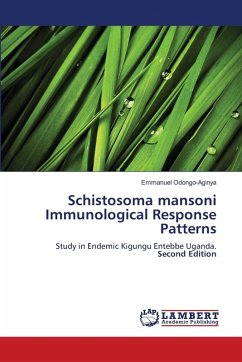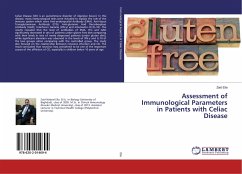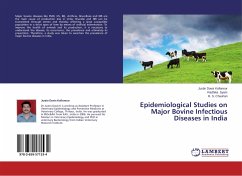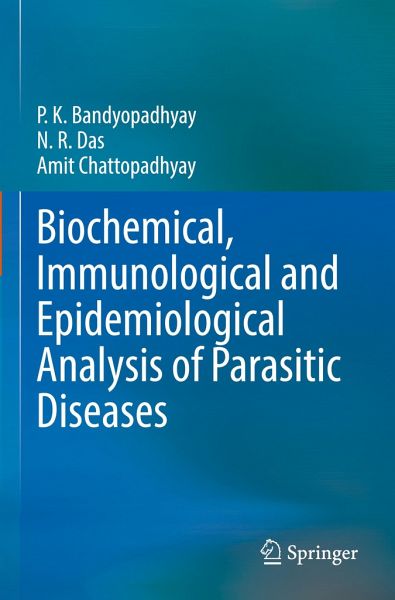
Biochemical, Immunological and Epidemiological Analysis of Parasitic Diseases
Versandkostenfrei!
Versandfertig in 6-10 Tagen
136,99 €
inkl. MwSt.
Weitere Ausgaben:

PAYBACK Punkte
68 °P sammeln!
This book comprehensively reviews various vector-borne diseases and their control methods. It discusses morphology, life history, and pathogenicity of protozoan and helminth parasites. Further, it analyzes host-parasite interactions and their adaptation within the host system for understanding parasitic infections.The book discusses the complex life cycle, biochemical adaptations, and molecular biology of the parasites. It investigates the immunological response to different infectious agents and explores new targets for combined therapeutic approaches. It also summarizes the evolution of para...
This book comprehensively reviews various vector-borne diseases and their control methods. It discusses morphology, life history, and pathogenicity of protozoan and helminth parasites. Further, it analyzes host-parasite interactions and their adaptation within the host system for understanding parasitic infections.
The book discusses the complex life cycle, biochemical adaptations, and molecular biology of the parasites. It investigates the immunological response to different infectious agents and explores new targets for combined therapeutic approaches. It also summarizes the evolution of parasitism and the ecology of parasites of the different phylum.
Lastly, it provides information on vector biology emphasizing the role of basic vector research in developing future disease control methods and improving upon the existing approaches.
The book discusses the complex life cycle, biochemical adaptations, and molecular biology of the parasites. It investigates the immunological response to different infectious agents and explores new targets for combined therapeutic approaches. It also summarizes the evolution of parasitism and the ecology of parasites of the different phylum.
Lastly, it provides information on vector biology emphasizing the role of basic vector research in developing future disease control methods and improving upon the existing approaches.





